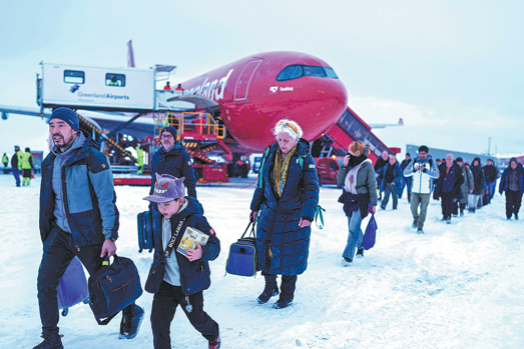Visits add to China's role in Mideast
By ZHANG YUNBI | China Daily | Updated: 2017-07-21 05:28
Beijing expects stronger coordination and cooperation to promote peace and dialogue in the Middle East as it hosted vists from prominent political figures of four countries in the region, Foreign Ministry spokesman Lu Kang said.
China's recent interactions with the region have come into the limelight as Palestine's president, Tunisia's foreign minister, the United Arab Emirates' minister of state and Qatar's foreign minister traveled to Beijing this week.
When meeting with Qatar Foreign Minister Sheikh Mohammed bin Abdulrahman Al-Thani on Thursday evening, Foreign Minister Wang Yi said China will continue promoting peace and dialogue in accordance with the needs of countries in the Middle East to further push for political settlements of the Gulf crisis.
In response, Mohammed said Qatar values its friendship with China and China's role in the region, and Qatar appreciates how China has reacted since the crisis began.
Currently, the Middle East situation is "at a critical crossroad", and "since there's no stability in the Middle East, the world can hardly enjoy tranquillity", Lu told a regular news conference on Thursday.
As a permanent member of the United Nations Security Council, China has always kept track of the peace, stability and development in the Middle East region, he said.
"There are no selfish interests behind China's addressing the Middle East issue, and it completely acts out of the well-being of regional countries and their people," Lu said.
A range of new proposals were made by Chinese officials during the recent sequence of visits and talks in Beijing.
Niu Xinchun, director of the Institute of Middle East Studies ¬¬at the China Institutes of Contemporary International Rela¬tions, said that behind the trips to China are the welcome gestures of the Middle East countries toward China's playing a greater role in the region and the region's leaders' hopes to ease tensions there.
Xue Qingguo, a professor of Arab studies at Beijing Foreign Studies University, said the recent China visits showcase China's impartial role in regional issues as well as China's good ties with the Middle Eastern countries.
"What China could do is to beef up its mediating efforts and offer its proposals. This does not mean China will get entangled or meddle in the standoffs. Instead, China offers helps within its capacity," Xue said.
In his talk on Tuesday with visiting Palestinian President Mahmoud Abbas, President Xi Jinping said China will hold a seminar for people who want peace in Palestine and Israel this year to contribute ideas and solutions to the Palestinian issue.
When meeting with visiting UAE Minister of State Sultan Ahmed Al-Jaber on Wednesday, Wang unveiled China's three-point position on the lingering Gulf crisis, including supporting an early start of talks by all parties involved.
Wang also proposed a four-point principle on the Libyan issue when meeting with his Tunisian counterpart on Wednesday, calling for reinforced international cooperation in the fight against terror.
























